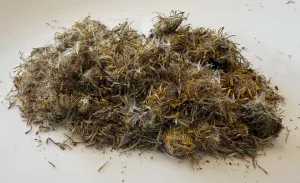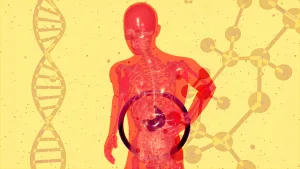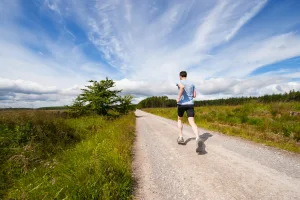
This past week, T.J. Watt of the Pittsburgh Steelers, suffered a pneumothorax (partial lung collapse) as reported by CBS SPORTS, after a dry needling accident at the team’s practice facility—the entire acupuncture community sighed in despondent frustration. For several years now, most licensed acupuncturists have taken exception to clinicians of other modalities appropriating from what we do, rebranding it as something new, and in some instances causing harm due to a lack of education.
As defined by the American Physical Therapy Association, dry needling is a modality that uses filiform needles to stimulate myofascial trigger points, muscular, and connective tissues, to treat pain and impaired range of motion.
Accoring to Theodore Levarda, sports medicine and dry needling acupuncturist of Morningside Acupuncture in New York, wrote: “Dry needling and acupuncture use the same acupuncture needle, but practitioner education, clinical training, and safety standards vary widely across professions. Licensed acupuncturists undergo extensive, formal training in needle-based procedures, anatomy, and safety protocols, while dry needling training for other professions is not standardized.”
To contrast licensed acupuncturists thousands of hours of education, plus national boards exams, nowadays there are many physical therapists, chiropractors, and MD’s taking 100-hour crash courses in acupuncture and/or “dry needling,” getting certified, and frankly, utilizing a medical modality they no little to nothing about. Pneumothorax is incredibly easy to avoid, as Watt’s is the first case of its kind I’ve heard of since beginning my own practice in 2013.
Linebacker, Patrick Queen, of the Steelers, cited two reasons why he prefers acupuncture to dry needling: “Kind of two different things: One [acupuncture], you got to go to school for a longer period of time. There’s a whole much more scientific thing that goes into it. I don’t do the whole dry needle thing. I’m actually scared of dry needling, so I kind of stay away from that stuff.”
While licensed acupuncturists appreciate Queen’s allegiance, what might be most interesting is the publicly accepted misconception of non-acupuncturists’ erroneous or even intentionally dishonest definition of the modality. It probably isn’t the dry needling that’s the problem but the practitioner behind the needle.
What you might find in an AI search and detailed on most web sites of non-licensed acupuncturists offering dry needling, and even WebMD and Cleveland Clinic, is an allegation that it is some uniquely modern approach to pain management, supposedly based on scientific evidence and western anatomy—whereas acupuncture is predicated on balancing some “energy,” or “life force” through “meridians” in the body. This stems from an old misinterpretation that is ripe for rectification—maybe we’ll have T.J. Watt to thank for his sacrifice to this end.
According to Donald Kendall’s book, The Dao of Chinese Medicine (2002, in 1901 George Soulie de Morant studied in China, then returned to Paris with a working understanding of the medicine, but several understandable gaps in comprehension. He mistranslated “Qi” as energy and “Jing” as meridian, the latter because of its applicability to almost anything longitudinal, including even agricultural fields. Whether due to the communication gap or geographic distance, over one hundred years later, most of us still operate under this same misguidance.
While the (Chinese) idea of “qi” might be broadened to refer colloquially to energies both within and outside of the body, in terms of medicine and physiology it is thought of as simply the systemic sum of our intake of air and food, which is exactly how its Chinese character reads. 氣
The food part is self-explanatory. The air, according to Kendall, as well as other scholars, such as Andrew Miles and Nigel Wiseman, encompasses oxygen and nitric oxide that travel within vessels (not “meridians”) or neurological pathways and carry blood and functional gases to our organs to either reduce inflammation or optimize functionality. Andrew Miles even outlines throughout his book, Enlighten Weight, the countless similarities between what nitric oxide does in the body and what Chinese medicine states are functions of qi, such as:
- Increasing body temperature
- Facilitating metabolism
- Capable of causing pain when stuck or trapped
In addition to “energy” and “meridians,” another term you can throw out with the bath water is “dry needling.” Dating back to the Han Dynasty thousands of years ago are medical texts that denote “ashi points” for needling. “Ashi” translates literally as “That’s the point,” in reference to local sites of pain, palpably taut bands, which ancient Chinese practitioners targeted with the intention of improving local perfusion and restoring normal muscular sarcomere length, precisely what supposedly distinguishes “dry needling.”
What’s more, there have been studies dating back as far as Ronald Melzack’s proving that 71% of the neuromuscular trigger points in the body correspond with acupuncture points, based on spatial distribution and associated pain patterns.
There is nothing wrong with dry needling, except for its name and prerequisites. Dry needling is local acupuncture. It’s been around for centuries. It is best administered by licensed acupuncturists who earned a master’s degree after four years of schooling, as opposed to clinicians of other modalities without ten percent the same education.
 Meet “Xuan Fu Hua,” or the British Yellowhead flower, an herb commonly used to treat acid reflux, cough, or allergies, outlined in the Divine Farmer’s Materia Medica as “salty, warm, and slightly toxic,” originally indicated for fullness below the rib sides and fright palpitations.
Meet “Xuan Fu Hua,” or the British Yellowhead flower, an herb commonly used to treat acid reflux, cough, or allergies, outlined in the Divine Farmer’s Materia Medica as “salty, warm, and slightly toxic,” originally indicated for fullness below the rib sides and fright palpitations.

 A quick re-cap on the year 2025 in the rearview, the “year-view,” if you will, otherwise “year in review” (clearly being a dad is impacting my jokes)!
A quick re-cap on the year 2025 in the rearview, the “year-view,” if you will, otherwise “year in review” (clearly being a dad is impacting my jokes)!

